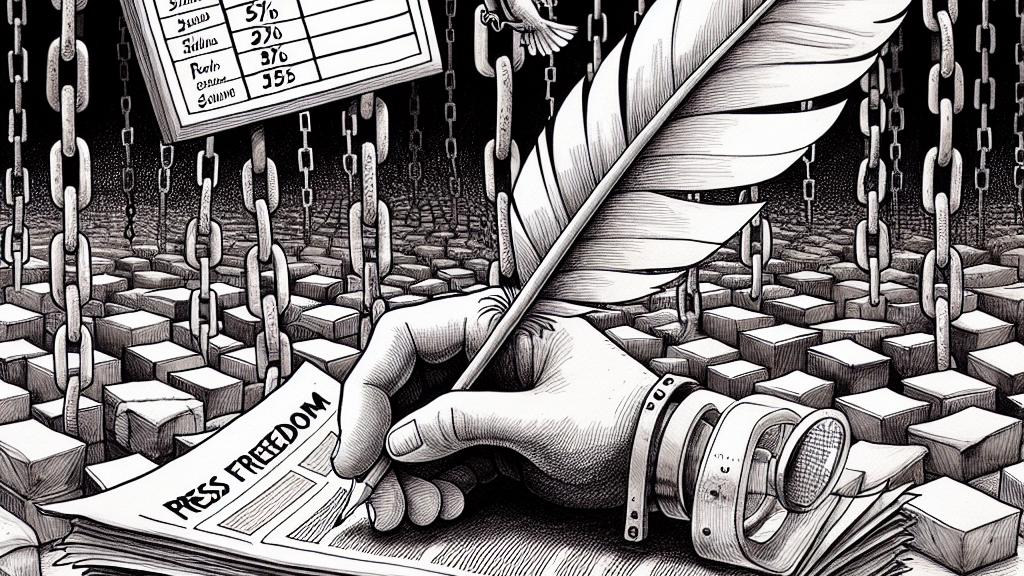Press Freedom Plummets: Hong Kong Journalists Sound the Alarm!
Overview
- Unprecedented decline in press freedom in Hong Kong, hitting an alarming score of 25.
- Surveys reveal over 90% of journalists feel threatened by recent national security laws.
- Prosecution of high-profile figures like Jimmy Lai highlights escalating risks for media professionals.

Shockingly Low Press Freedom Index
The latest survey from the Hong Kong Journalists Association (HKJA) has shown a staggering collapse in press freedom within the city, achieving a record low of 25 on the Press Freedom Index. This score represents a grim decline of 0.7 points from the previous year and a dramatic drop of 17 points since the index was first launched in 2013. The survey incorporated the perspectives of over 250 journalists and approximately 1,000 members of the public, revealing a unanimous sense of alarm regarding the current state of media freedom. The results indicate a significant cultural shift as journalists navigate an environment increasingly hostile to free expression and independent reporting.
National Security Law: A Sword Over Journalists' Heads
The introduction of the national security law, particularly its recent extension through Article 23, has deeply unsettled media professionals in Hong Kong. With over 90% of surveyed journalists indicating that these laws have severely restricted their reporting abilities, there is a prevalent atmosphere of fear and uncertainty. The vague language of the law stifles independent journalism by penalizing potential ‘crimes’ such as misinformation or dissent, leading many journalists to self-censor to avert prosecution. A glaring example is Jimmy Lai, a prominent media figure whose arrest under these laws reveals the risks that reporters face when they challenge authority. The survey's findings portray a pervasive concern that journalists can no longer fulfill their vital role in society without facing dire consequences.
The Global Significance of Hong Kong's Press Freedom Crisis
The implications of Hong Kong's declining press freedom resonate internationally, raising important questions about the future of journalism worldwide. High-profile cases, such as that of Jimmy Lai and other media professionals, underscore the dangers faced in an increasingly repressive environment. Many view the muted response of the international community, particularly the United States, as insufficient, with advocacy groups calling for more robust actions to uphold democratic values. The global oversight suggests that inaction could embolden authoritarian regimes elsewhere, jeopardizing independent journalism's very existence. As the world watches, Hong Kong serves as a critical barometer for the state of press freedoms, igniting essential dialogues around the need to protect and uphold independent media in all democratic societies.

Loading...